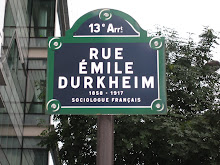I was in Massachusetts at the beginning of August for the
SSSP conference and got to spend some time with my mother as she lives in Andover, where I grew up. She asked me what I wanted to do and I wanted to go to Lawrence. I have been meaning to write about this trip and I think I will try to do so here.

Even though the downtown area of Lawrence is just a mile from the downtown of Andover, the two towns had completely different reputations in the late 20th century, when I was growing up. While Andover is mostly European American (I only knew one Black person in the public high school I attended), Lawrence is very diverse. The origins of this difference is complex. But one of the reasons is that the first textile mills in America were built in Lawrence and after a stint of encouraging young women from the farms to work in the mills and live in the company dormitories, immigrants and their families came to work. Italians, Irish, Syrians, Jewish, and Germans came to Lawrence and worked very long hours for not much pay. Lawrence never stopped being an immigrant town. Today it has the second largest population of Puerto Ricans in the country. Andover had textile mills also. But as those declined, core service organizations moved in. An IRS processing center is there as well as
Raytheon, a government contractor. Consequently, Andover's public school system had a larger base of funds than Lawrence. It is one of the best school systems in Massachusetts. The Lawrence kids didn't fair so well. Stuck with old, cramped housing with no room for the city to grow, its tax base was less and stretched thin by a large population with diverse needs. When I was in high school, Lawrence had one of the highest rates of teenage pregnancy in the country.

When I was growing up, just muttering the word Lawrence meant "danger". The kids from Andover never wanted to go into Lawrence. Granted, it was a post industrial town at the time and its street crime rate was much higher than Andovers'. Lawrence experienced an economic depression after businesses vacated the mills and this is a major contributing factor to the street crime that followed. I can say that without a doubt, crime and people of color became intertwined in our minds. Social class obscured racial and ethnic difference and vice versa. To get even more specific, I think that our ideas about drug use were intermingled here as well. As kids, we assumed that drug use was what bad people did. And if you lived in Lawrence, you must be bad. I grew up in this very self-segregated environment. (In later years, I came to understand that the Lawrence kids thought of us as stuck up snobs. Everyone was ignorant of each other.) The way we saw Lawrence was especially harmful because it meant that we stayed in our bubbles and failed to see how we played a part in the system.
Lawrence is where I first started thinking about social class, race, and ethnicity. I got to know a girl who was Puerto Rican and Black through
Big Brothers Big Sisters so I got to see Lawrence through a different set of eyes. My first job outside of the home was also in Lawrence - in a renovated textile mill packaging books. I got to know some people that worked there, I ate there, and I began to see that Lawrence was not scary in the way that everyone thought. It was certainly not
comfortable for someone like me, a White, middle class woman who had very strict ideas of how the world worked. But safety and comfort are two different things.

When I visited Lawrence last month, I saw a lot of changes. Where the downtown area used to be mostly comprised of boarded up businesses, now there small businesses (tiendas, five and dimes), local agencies (job training) and some chain stores (Rent-a-Center, Family Dollar). Most importantly, there were people around.
Polartec fabrics is there, too, employing people.
Just outside of the downtown area, where the mill complex still stands, I snapped this photograph:

The billboard, an ad for Citgo, reads, "La energia que mueve al vecindario." "Citgo: energia Latina." Translation: "The energy that moves the neighborhood. Latin energy." Is Lawrence finally embracing its ethnicity? In the context of the global economy, where is Lawrence heading?












